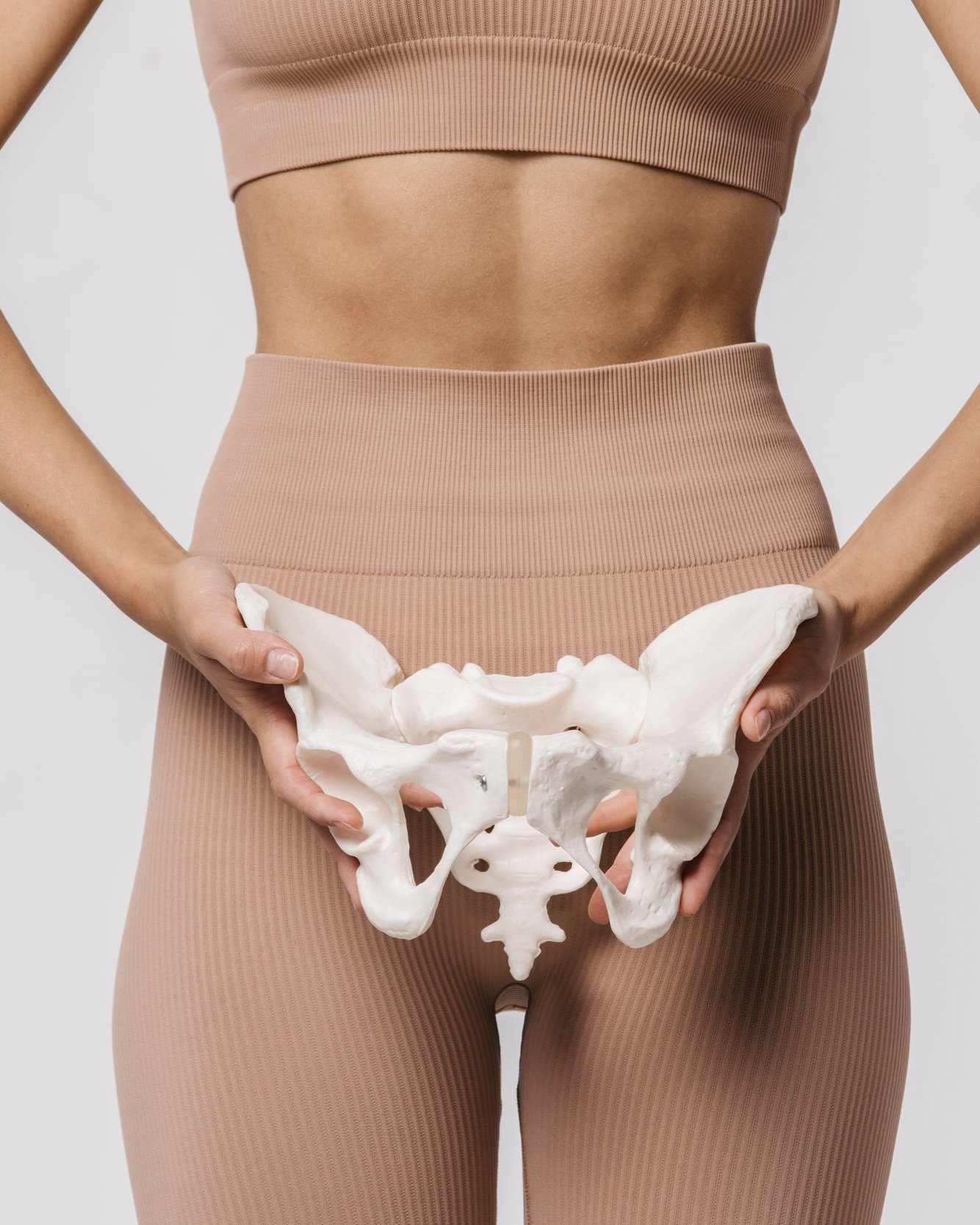Women’s Pelvic Health Physiotherapy Worthing
All Women’s Health Physiotherapy appointments at Sussex Physio Pilates are with Senior Physiotherapists Claire Yuill, Ruth Smith & Tania Pendreich at our dedicated Worthing Physiotherapy practice, here in West Sussex.
They combine there over 30 years of experience as Musculoskeletal Physiotherapists and Specialist Woman’s Health training, to holistically assess and treat Pelvic Dysfunctions such as:
- Urinary Incontinence
- Bladder Dysfunctions
- Pelvic Pain
- Pelvic Instability and Weakness
- Pelvic Organ Prolapse
We also offer The Mummy MOT, a postnatal assessment for new, and not-so-new Mums – Assessing tummy and pelvic floor strength and function.
What is the Pelvic Floor?
The pelvic floor is a group of muscles that form the ‘floor of your core’. They, just like other muscles of the body, can become weak (often after pregnancy or menopause) or tight (due to pelvic pain, injury or stress).
Examining the pelvic Floor:
Women’s Health Physiotherapists assess the pelvic floor by performing an internal examination. This allows us to determine the tone and strength of the muscle lift, as well as checking that you are working the muscles in the right way.
This part of the assessment can be performed at the 1 st appointment, but only if you feel comfortable and give your valid consent.
You are welcome to bring a Chaperone.
Female Urinary Incontinence
The Facts:
50% of the Women will experience Urinary Incontinence at some time in their lives.
Only 1:5 affected women will seek help.
Physiotherapy assisted pelvic floor exercises have up to 84% success in treating stress incontinence.
Stress Incontinence – leaking urine when you cough, laugh, sneeze or jump is usually caused by weakness of the Pelvic floor muscles (that form the floor of the core). Guided pelvic floor strengthening is often a large part of treatment.
Urge Incontinence (or Over Active Bladder) – Leaking urine when you feel a sudden urge to ‘go’. Pelvic floor exercises can also play a part here, but often the bladder needs to be ‘re-trained’ in it’s habits.
Claire, Tania and Ruth have all undergone additional Specialist Women’s Health training with the POGP (Pelvic, Obstetric and Gynaecological Physiotherapy), and also with Dr Ruth Jones, Maria Elliot and Kate Walsh.




